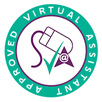|
Thinking that we can handle it all is a common mistake. You’d need superpowers to simultaneously create a business strategy, set goals, handle office admin, manage employees, implement training and get business results. If you own a start-up, there’ll hopefully come a moment in your life when you have to recognise that you can’t do everything yourself. This pivotal turning point is a positive step towards growing a start-up into a small business and beyond. If you’re still handling all the HR responsibilities yourself, it’ll only be a matter of time before you drop the ball, not to mention that you could be better focusing your energy on the core of your business. Here’s how to recognise when you need to step back and delegate your HR: 1. Inspiring Individual Employees You want to inspire all your employees with your vision and values. You want them on your team, you want them contributing the best that they can and you want them to care about your business. When you find that you no longer have the time to inspire and empower each individual employee, it’s time to find others to be ambassadors within your business. 2. Business is Doing WellGreat, you’re thinking! Business is prospering — that’s the goal. While this is good news, it’s not uncommon for employees to start wondering if they will see any additional rewards for the part that they played in helping the business grow. It’s time to consider whether you will give employees shares in the business or implement a performance related pay scheme. 3. You Have One or More Managers with TeamsAs business has grown, you’ve hired in managers to lift some of the weight and some of them may already have small teams to manage. If you’ve got good people in place, then they’ll want to ensure that their teams are being treated fairly. You’ll need to discuss how their team fits into the big picture and contributes to overall business performance, making sure their effort is well rewarded. 4. Training & DevelopmentAfter having committed to the company for a certain amount of time, employees will also be asking if there are any training and career development opportunities in your organisation. Investing in employee training and development is an important employee retention tool, as well as a positive contribution to your business overall. 5. Expanding Business Model & Changing RolesThe structure of your team or individual jobs may need to change to meet the demands of the business. It’s likely that you will introduce more complex or higher value products and services, and will also have team members whose job roles are solely focused on supporting internal customers or team members. This could be an accounts role or sales support team, for example. Looking at the Value of Your Own TimeYou need to take stock of the value of your own time and how it’s best spent. When you begin to see the above five issues affecting your business, that’s a signal to re-evaluate how you’re doing HR. The best advice is to read up on HR for small businesses. It may be that you need to hire in an expert, train someone already in your business, buy in HR consultancy services or outsource HR to a specialist provider. Take a look at your business plan and identify the biggest threats and the best opportunities. Look at what your business needs in order to succeed and where your budget would be most beneficial. This article was contributed by HR specialists Marc Bishop and Sharon Crooks.
Comments are closed.
|
AuthorCategories
All
Archives
May 2023
|



 RSS Feed
RSS Feed


